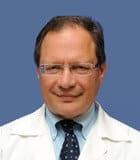The Department of Surgery – Surgery in Israel
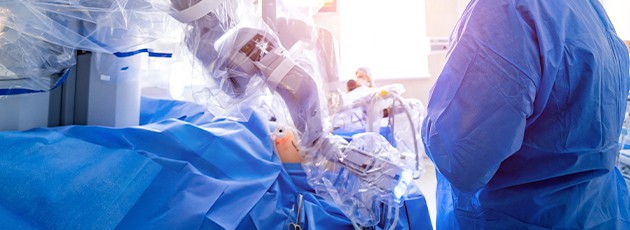
The Department of Surgery is headed by Professor Joseph Klausner. He directs dozens of surgeons of various specialties including 20 professors. This is one of the main surgical departments in Israel: 60% of patients present with complicated cases having been referred here from different regions of the country.
The main areas of focus at the Department of Surgery include:
- Surgical oncology;
- Abdominal surgery;
- Gynecologic surgery;
- Urologic surgery.
The Surgical Oncology Department
What Diseases Are Treated at the Surgical Oncology Department?
| Breast cancer | Colon cancer |
| Liver cancer | Lung cancer |
| Melanoma | Pancreatic cancer |
| Sarcoma | Skin cancer |
| Stomach cancer | Thyroid cancer |
| Adenocarcinoma | Carcinoid tumors |
| Esophageal cancer | Lip cancer |
| Oral cancer |
The Leading Surgeons In Israel

Professor Joseph Klausner, Head of the Department of Surgery, specialist in gastrointestinal cancer treatment. Member of 10 international medical associations. Author of over 160 scientific publications.

Professor Schlomo Schneebaum, specialist in organ-preserving breast surgery and surgical melanoma treatment. President of the Israeli society for breast diseases. Former Head of the Israeli Society of Surgical Oncology. Member of 16 international medical associations.

Doctor Boris Gendel, thoracic surgeon, performs unique minimally invasive surgery for lung cancer. Professional experience: over 30 years. Headed Thoracic Surgery Department at the Meir Medical Center for more than 20 years.

Doctor Marat Khaikin, colorectal surgeon, specializes in surgery for colon and rectal cancer. Performs robot-assisted surgical interventions. Worked at the leading clinics in Israel, England, France, and Germany.
IInnovations: New Surgical Methods In Top Ichilov
Complete Cure Following an Endoscopic Dissection of Early-Stage Gastrointestinal Tumors
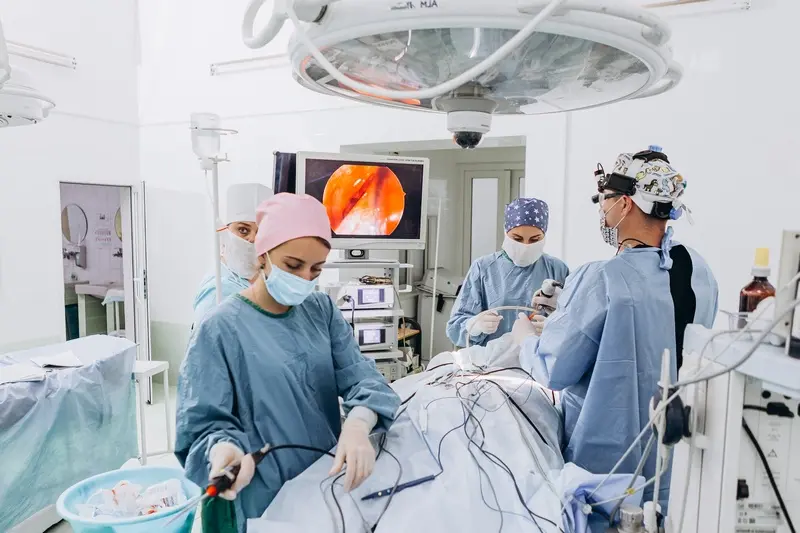
This type of surgery is indicated for early-stage malignant tumors in the stomach and the colon. It was developed in Japan and then gained popularity at the leading medical centers of the Western countries.
The endoscopic dissection surgery is performed through an endoscope, without external incisions, and takes 2-4 hours. It includes the following stages:
- Marking of the tumor borders;
- Injection of liquid into the submucosa;
- Removal of the tumor with a special scalpel.
After the procedure, most patient do not need any additional surgical or therapeutic cancer treatment.
Complete Recovery of the Tongue Function after Reconstructive Microsurgery
Up until now, the removal of a large malignant tongue tumor left a substantial defect that prevented normal speaking. The new microsurgical procedure completely restores the tongue’s function. It is carried out simultaneously with the removal of the tumor. Doctors usually use tissues from the forearm for reconstruction. During surgery, they connect the transplant’s blood vessels to the vessels in the affected area. The speaking and swallowing functions are restored completely within a few months.
Surgery and Other Procedures at Oncologic Surgery Department: 90% of Breast Cancer Patients in Israel Preserve Their Breasts
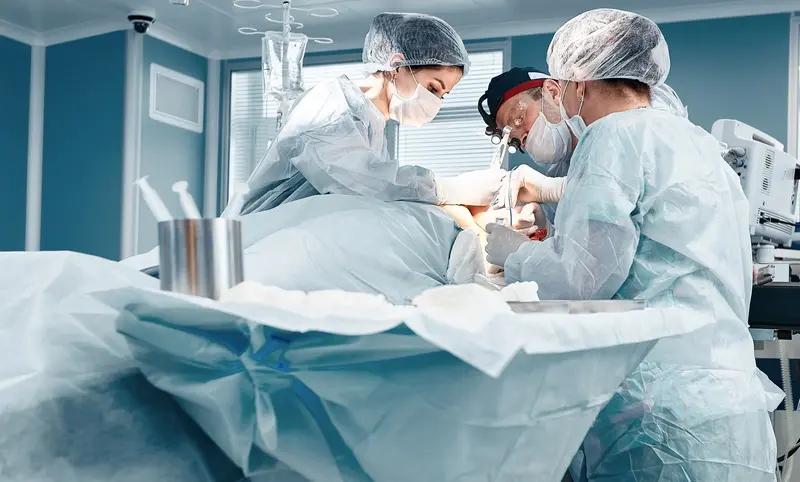
Breast-conserving surgical interventions are carried out in Israel in 90% of breast cancer cases. For breast cancer, doctors also perform a sentinel lymph node biopsy. This prevents removal of the healthy lymph nodes and development of lymphedema.
Laparoscopic Surgery for Gastrointestinal Cancers
These surgical procedures are performed through small punctures in the skin of the abdomen. Laparoscopic surgery is distinguished by the low complication risk and faster recovery.
Intraperitoneal Chemotherapy
During the procedure, the doctor administers the chemotherapy drug directly into the abdominal cavity. As a rule, this happens as part of cytoreductive surgery, a procedure to remove all visible tumor tissues.
The Abdominal Surgery Department
What Diseases Are Treated at the Abdominal Surgery Department?
The Department’s Physicians

Professor Hagit Tulchinsky, abdominal surgeon with over 25 years of professional experience. Directs the Colorectal Surgery Clinic. Gained experience at the leading medical centers in Israel and Great Britain. Was included into the top list of Israel’s best physicians compiled by the Forbes magazine in 2019.

Professor Miha Rabau, colorectal surgeon with about 40 years of professional experience. Headed the Colon and Rectal Surgery Clinic for about 20 years. Worked at the leading surgical clinics in the USA, Great Britain, and Switzerland.

Professor Gideon Goldman, Director of the Proctology Clinic, colorectal surgeon with about 40 years of professional experience. Gained experience at the leading clinics in Japan, Great Britain, and the USA. Participated in research at Harvard University (USA). Author of over 110 scientific publications.

Doctor Ron Greenberg, abdominal surgeon, professional experience: over 30 years. Senior physician of the Colorectal Surgery Department. Worked at the large surgical clinics in Italy and Austria.

Doctor Amir Szold, one of Israel’s first specialists in laparoscopic surgery. Founder of the Laparoscopic Surgery Department at the Ichilov Medical Center. Also founded the Israel Society for Endoscopic Surgery. Published about 100 research works in endoscopic surgery. Senior lecturer at Tel Aviv University Faculty of Medicine.
Innovations-2024: New Treatment Methods
Patients Lose Up to 20-70 kg of Excess Weight Following POSE Surgery
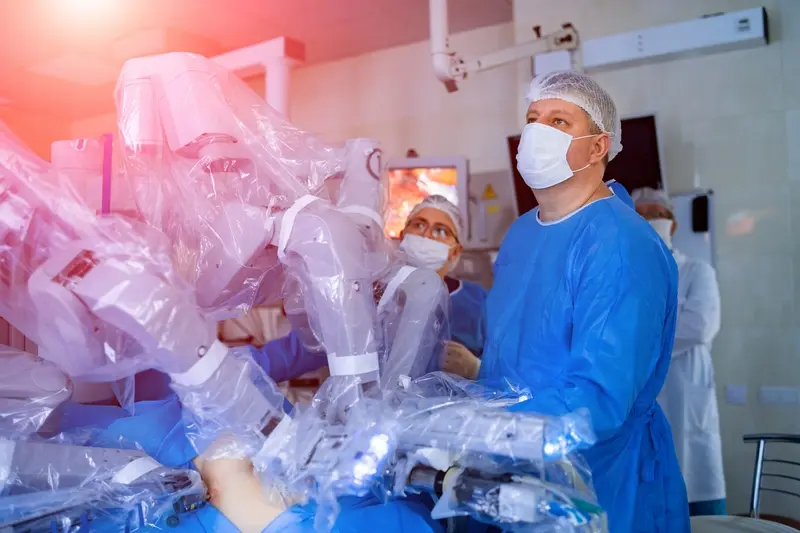
Unlike many other bariatric operations, this procedure is performed using a gastroscope, without external incisions. It does not require hospitalization. During surgery, the doctor makes creases in the stomach walls with special clips in order to reduce gastric volume. The procedure helps lose 20-70 kg of excess weight.
Robot-Assisted Gastrointestinal Surgery
Up until now, robot-assisted surgery was mainly used for urologic conditions. At present, however, the specialists of the surgical department use DaVinci Xi, the world’s most advanced robot, for gastrointestinal surgery. This type of surgery is indicated for:
- Stomach cancer and colon cancer;
- Hiatal hernia.
The advantages of these procedures include higher accuracy, faster recovery, and lower complication rates.
Procedures Performed At The Abdominal Surgery Department
Laparoscopic Cholecystectomy
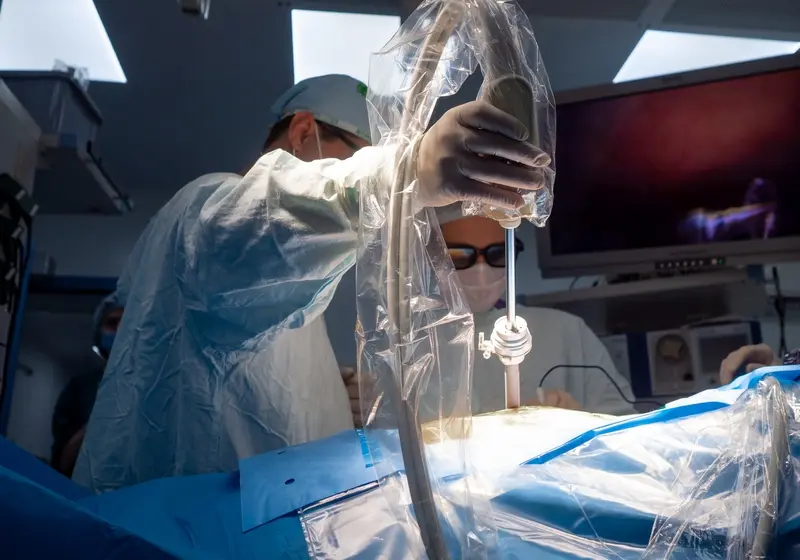
This type of surgery is mostly used for cholecystitis, or inflammation of the gallbladder. In Israel, over 99% of gallbladder removal procedures are laparoscopic. This means that they are carried out through 5-10mm punctures in the skin of the abdomen. The hospital stay after this procedure lasts only 1-2 days.
The HAL-RAR Hemorrhoid Surgery
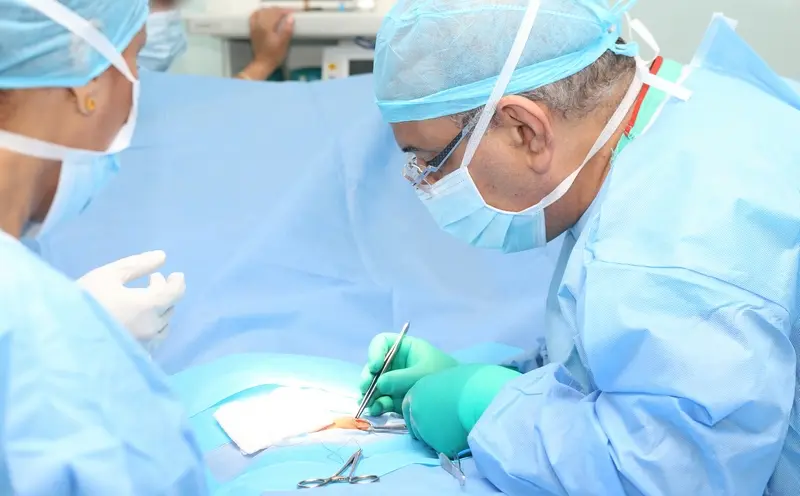
This is the most sparing surgical procedure for hemorrhoids. The doctor blocks the blood flow to the hemorrhoids by means of artery ligation. Arteries feeding the inflamed tissues are sought out with Doppler sonography. The surgical intervention is minimally invasive; it is performed using a transparent anoscope and takes no longer than 30 minutes. The symptoms of hemorrhoids disappear 10-14 days after surgery.
Hernioplasty: Minimally Invasive Surgery for Hernias
These surgical interventions are performed for abdominal and inguinal hernias. To treat hernias, doctors use mesh implants made of a biocompatible material. Surgery is carried out under general anesthesia, through several punctures in the abdominal wall. The hospital stay lasts for 1-2 days.
The Gynecologic Surgery Department
What Diseases Are Treated at the Gynecologic Surgery Department?
| Ovarian cancer | Uterine cancer |
| Endometrial hyperplasia | Endometriosis |
| Ovarian cysts | Uterine fibroids |
| Uterine polyps | Fallopian tube obstruction |
| Vaginal cancer |
The Department’s Physicians

Professor Osnat Groz, specialist in urogynecology. Author of about 100 research works, member of 4 international physician organizations. Was included into the top list of Israel’s best physicians compiled by the Forbes magazine in 2019.

Professor Dan Grisaru, gynecologic surgeon, Director of the Gynecologic Oncology Clinic. Professional experience: over 35 years. Worked at the leading gynecologic clinics in Israel, the USA, and Canada. Author of about 100 scientific publications.

Professor David Schneider, gynecologic surgeon, specialist in gynecologic oncology with about 30 years of professional experience. Gained experience at the leading clinics in Israel and the USA.

Doctor Ziv Tsafrir, gynecologic surgeon, professional experience: over 20 years. Specialist in minimally invasive and robot-assisted gynecologic surgery. Lecturer at Tel Aviv University Faculty of Medicine.
Innovations-2024: New Treatment Methods
Gynecologic Surgery Using the DaVinci Xi Surgical Robot
Robotic surgery is used to treat the following conditions:
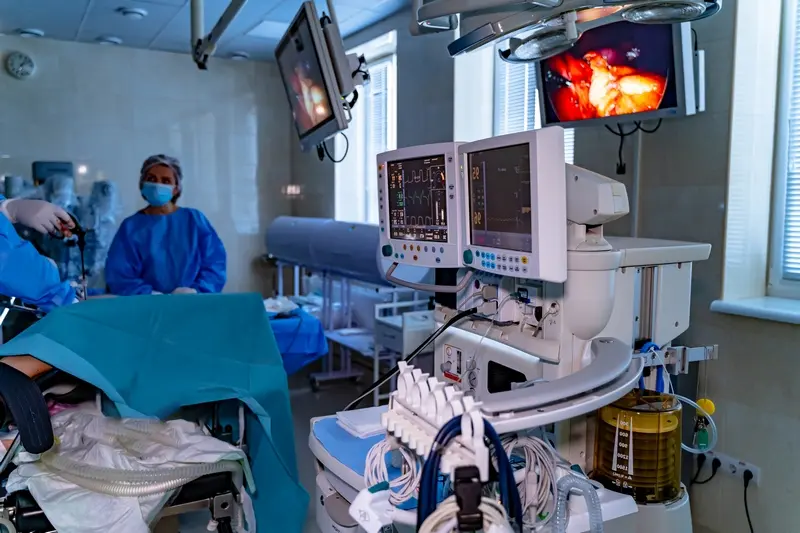
- Endometriosis;
- Uterine fibroids;
- Malignant uterine tumors.
This is laparoscopic surgery: the procedure is carried out through 4 punctures in the skin of the abdomen. During surgery, the doctor sees the significantly magnified surgical site on the computer screen. A tiny video camera records the procedure.
The vNOTES Surgery
These procedures are carried out without external incisions, through the natural body orifices. In gynecologic surgery, they are performed through the vagina. The vNOTES method may be used for:
- Removal of the uterus (hysterectomy);
- Removal of ovarian cysts;
- Removal of uterine fibroids;
- Endometriosis treatment.
Procedures Performed At The Gynecologic Surgery Department
Surgery Using the SILS Method
The Top Ichilov gynecologic surgeons also carry out endoscopic procedures using the SILS method, through a single small puncture near the navel. This type of surgery leaves no visible traces on the woman’s body. The SILS method is used for:
- Uterine fibroids;
- Endometriosis;
- Pelvic adhesions;
- Fallopian tube obstruction, etc.
Organ-Preserving Surgery for Cervical Cancer
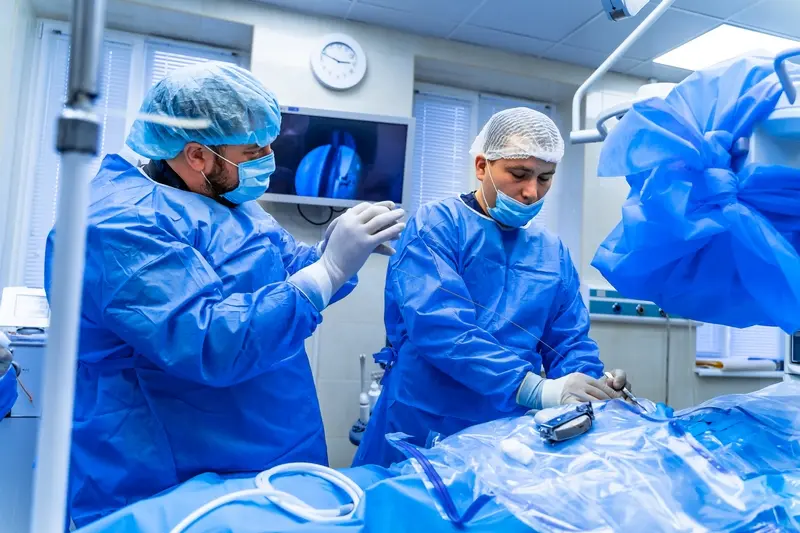
Historically, cervical cancer patients were offered hysterectomy, or surgical removal of the uterus. Nowadays, Israeli experts are almost always able to preserve the uterus in early-stage cervical cancer. This is done with the following types of surgery:
- Conization – removal of a cone-shaped piece of the cervix;
- Trachelectomy – removal of the cervix with preservation of the uterus.
Following treatment, the woman not only gets rid of the tumor, but also keeps her ability to have children.
The Urologic Surgery Department
What Diseases Are Treated at the Urologic Surgery Department?
| Benign prostatic hyperplasia | Kidney cancer |
| Prostate cancer | Bladder cancer |
| Cryptorchidism | Hypospadias |
| Vesicoureteral reflux | Kidney stones |
| Renal cysts |
The Department’s Physicians
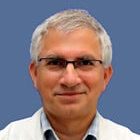
Professor Haim Matzkin, urologic surgeon, was Head of the Urology Department for many years. Former Head of the Israeli Urological Association. Professor of Urology Department at Tel Aviv University, author of over 160 research works.
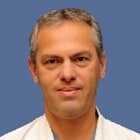
Professor Mario Sofer, urologic surgeon, specialist in endoscopic treatment for kidney stones. Senior lecturer at the Tel Aviv University Urology Department. Worked at the leading urological clinics in Israel, the USA, and Canada.
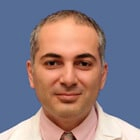
Doctor Avi Beri, urologic surgeon, specialist in prostate surgery. Lecturer at the Tel Aviv University Urology Department. Was included into the top list of Israel’s best physicians compiled by the Forbes magazine in 2019.

Doctor Gal Keren-Paz, urologic surgeon, specializes in endoscopic and robot-assisted surgery. Professional experience: about 30 years. Worked at large medical centers in Israel and the USA.
Innovations-2024: New Treatment Methods
Benign Prostatic Hyperplasia Treatment Using a Butterfly-Shaped Stent
A stent of the unique design is implanted on the outpatient basis. The procedure takes only 10-15 minutes. Urination is restored immediately after the procedure. In many cases, this minimally invasive treatment option serves as an alternative to the traumatic surgery – transurethral resection of the prostate.
Laser Treatment for Kidney Stones
Holmium laser lithotripsy using the Israeli “Moses” method is an endoscopic technology that uses a laser to break down kidney stones. The procedure is performed with an urethroscope, a thin tool inserted through the urethra. The new technology significantly reduces the duration of the procedure: if historically, it took up to 1.5 hours, now kidney stones are destroyed within 20-40 minutes.
Procedures Performed At The Urologic Surgery Department
Laser Vaporization for Benign Prostatic Hyperplasia
The advantage of this procedure compared to transurethral resection of the prostate consists in faster recovery and less blood loss: the laser “seals” the blood vessels and therefore prevents bleeding.
Laparoscopic Partial Nephrectomy
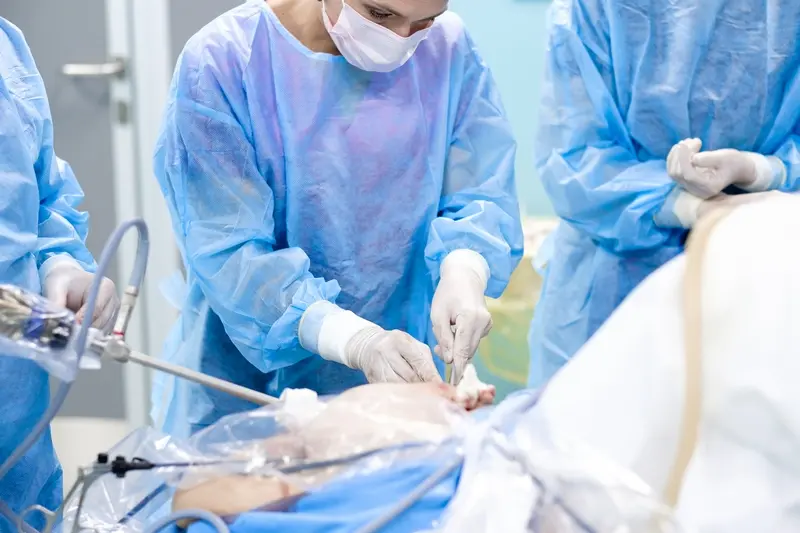
This organ-preserving surgical procedure is used for cancer and other kidney diseases. It removes the tumor completely while preserving the affected kidney and its function. Since kidneys contain a lot of blood vessels, this surgical intervention is considered one of the most complicated procedures in urologic surgery. Nevertheless, Top Ichilov has experts with extensive experience in this type of surgery.
Transurethral Surgery for Genitourinary Conditions
The transurethral resection technique is used to treat prostate cancer, benign prostatic hyperplasia, conditions of the urethra and the bladder, etc. The procedures are performed through the urethra, without any external incisions. This type of surgery implies extensive use of laser technologies.
A Virtual Tour Of The Department

Thorough surgical planning is the key to successful treatment. In Top Ichilov, all urologic surgical procedures are planned and carried out by doctors with at least 20 years of professional experience.

Our Department of Surgery uses DaVinci Xi, the latest-generation robotic surgical system. Our specialists use it for urologic and gynecologic surgery as well as for gastrointestinal interventions.

Most types of surgery at the Top Ichilov Department of Surgery are laparoscopic. They are carried out through 3-5 punctures in the abdomen. The doctor sees the surgical site on a large screen.

In this photo, you can see our surgeons perform laser surgery for benign prostatic hyperplasia. This is one of the most advanced and sparing technologies in urologic surgery.

Successful recovery is an important part of surgical treatment. The newest “Fast Track” recovery method implies that the patient will stand up and start walking the day after surgery.
How Can I Have Bariatric Surgery In Top Ichilov?
- Call the clinic right now: +972-37621629
- Or fill in the form below. Our doctor will contact you within 2 hours.

Publication Date:














